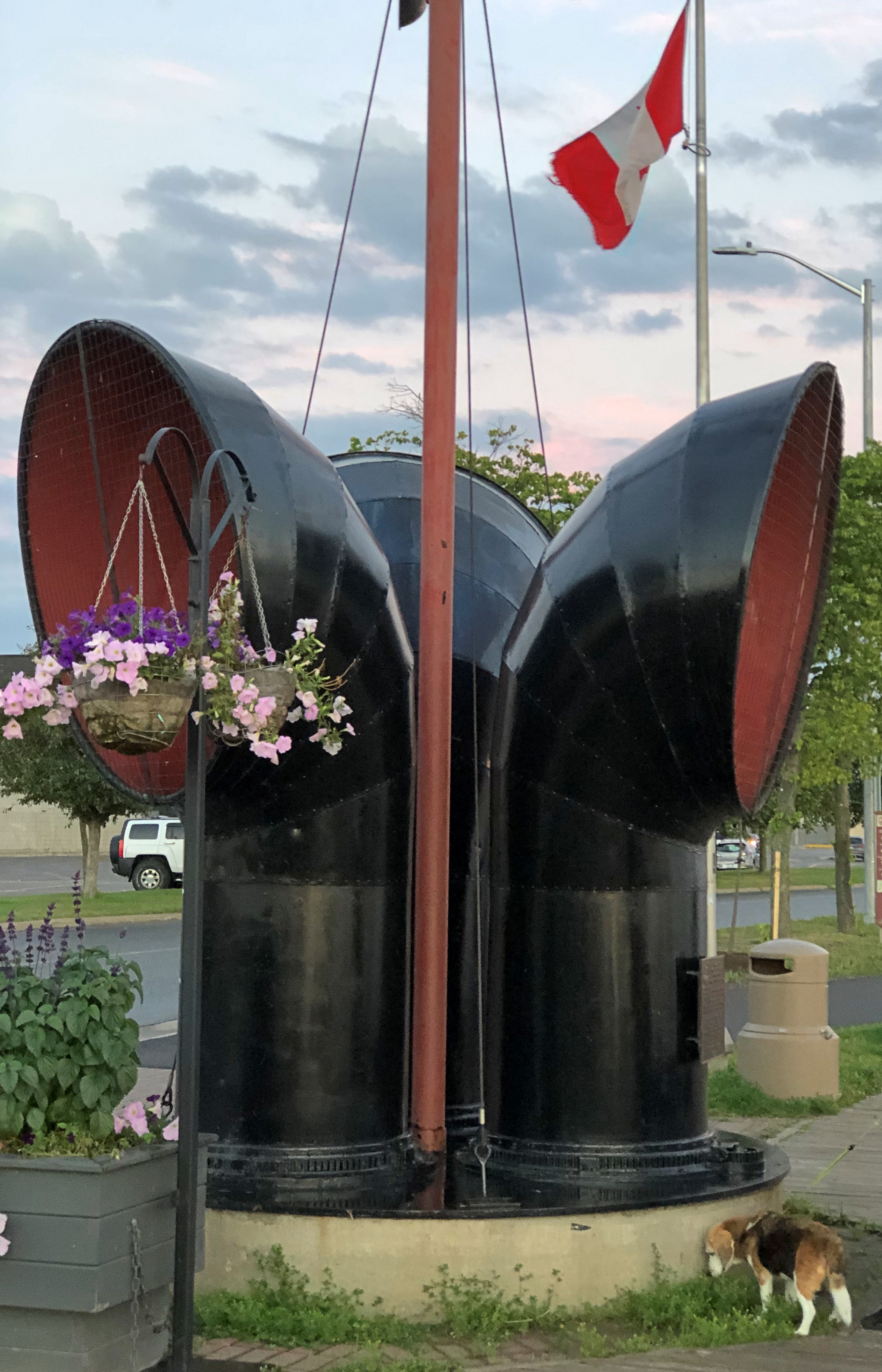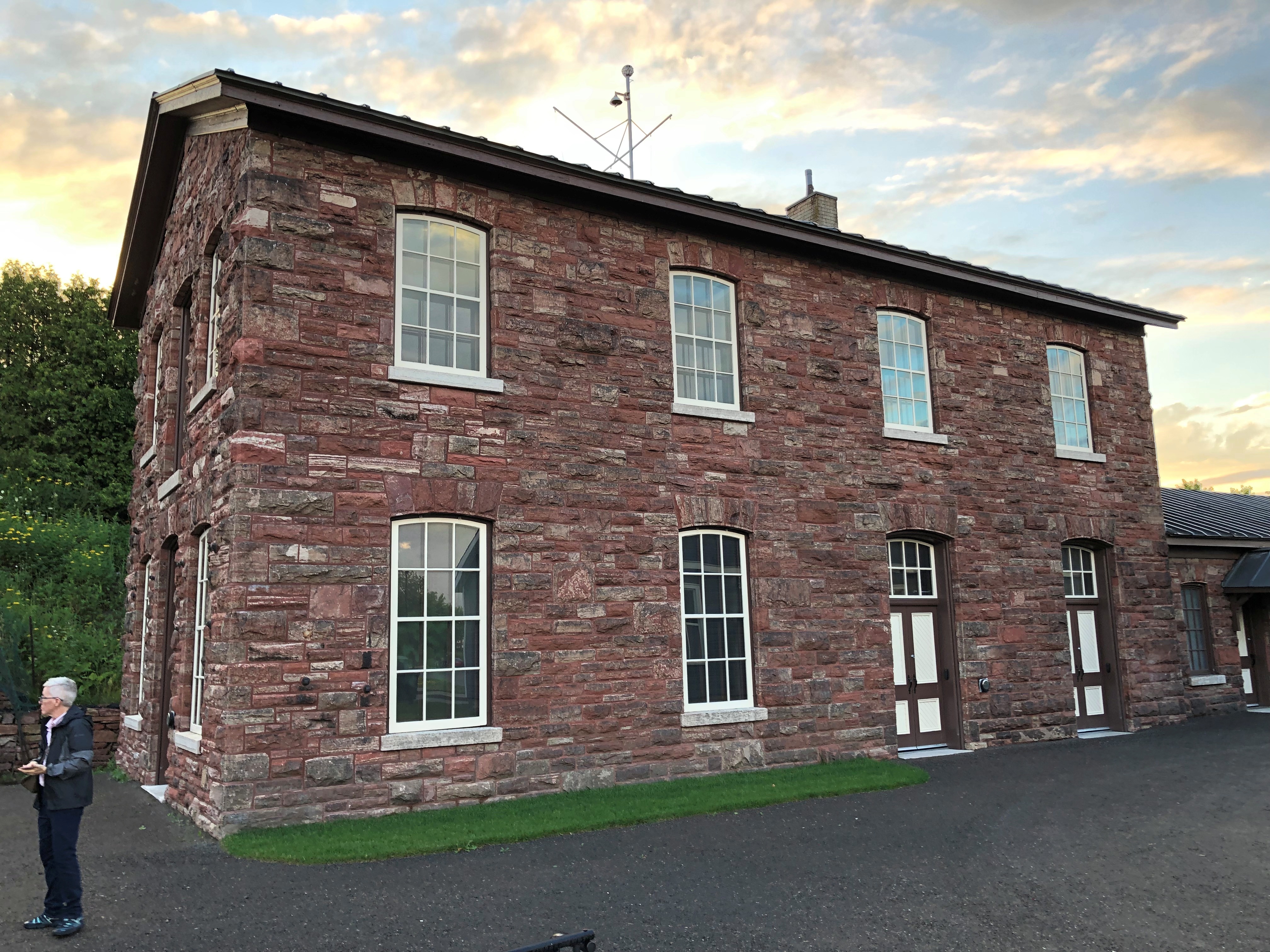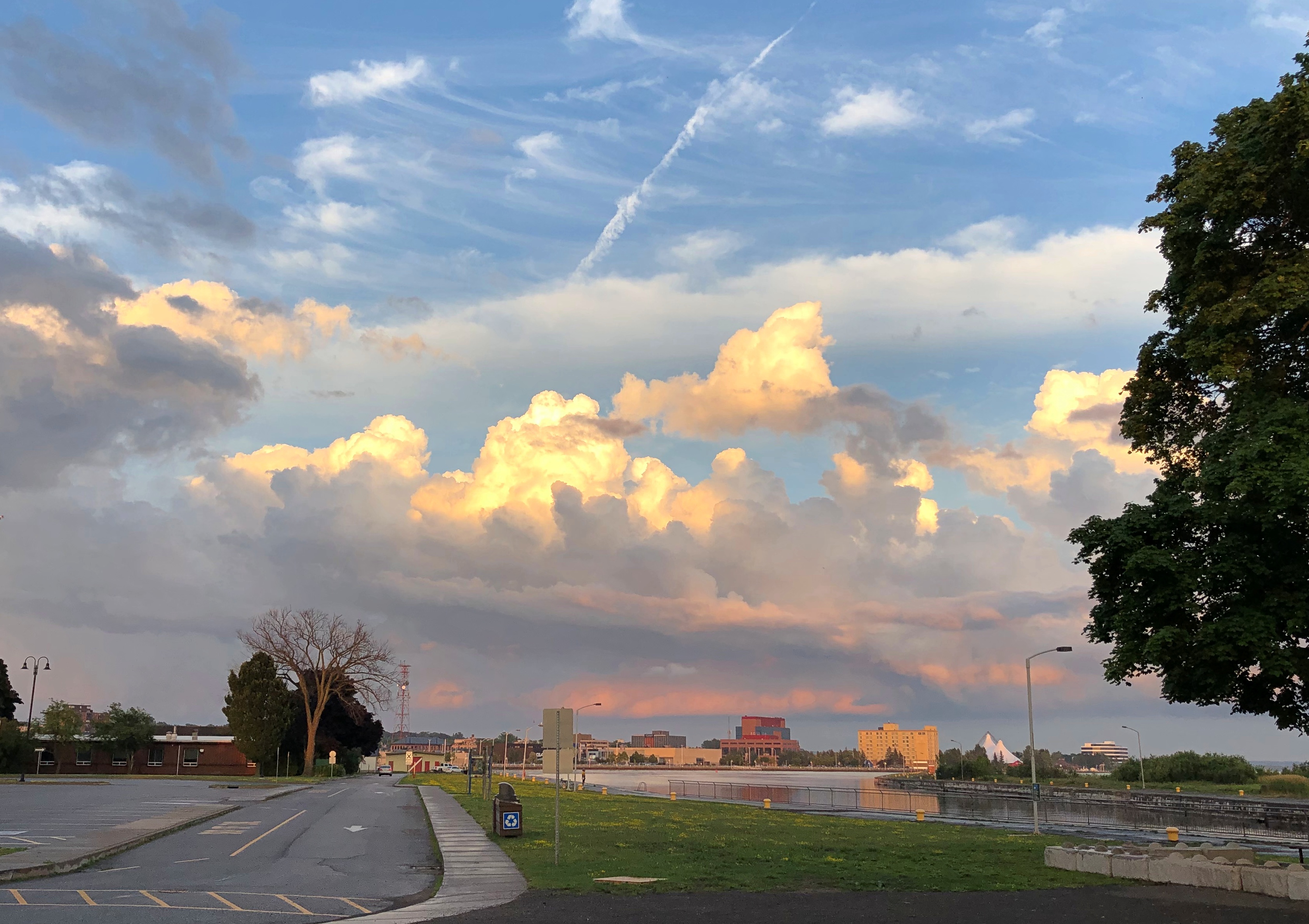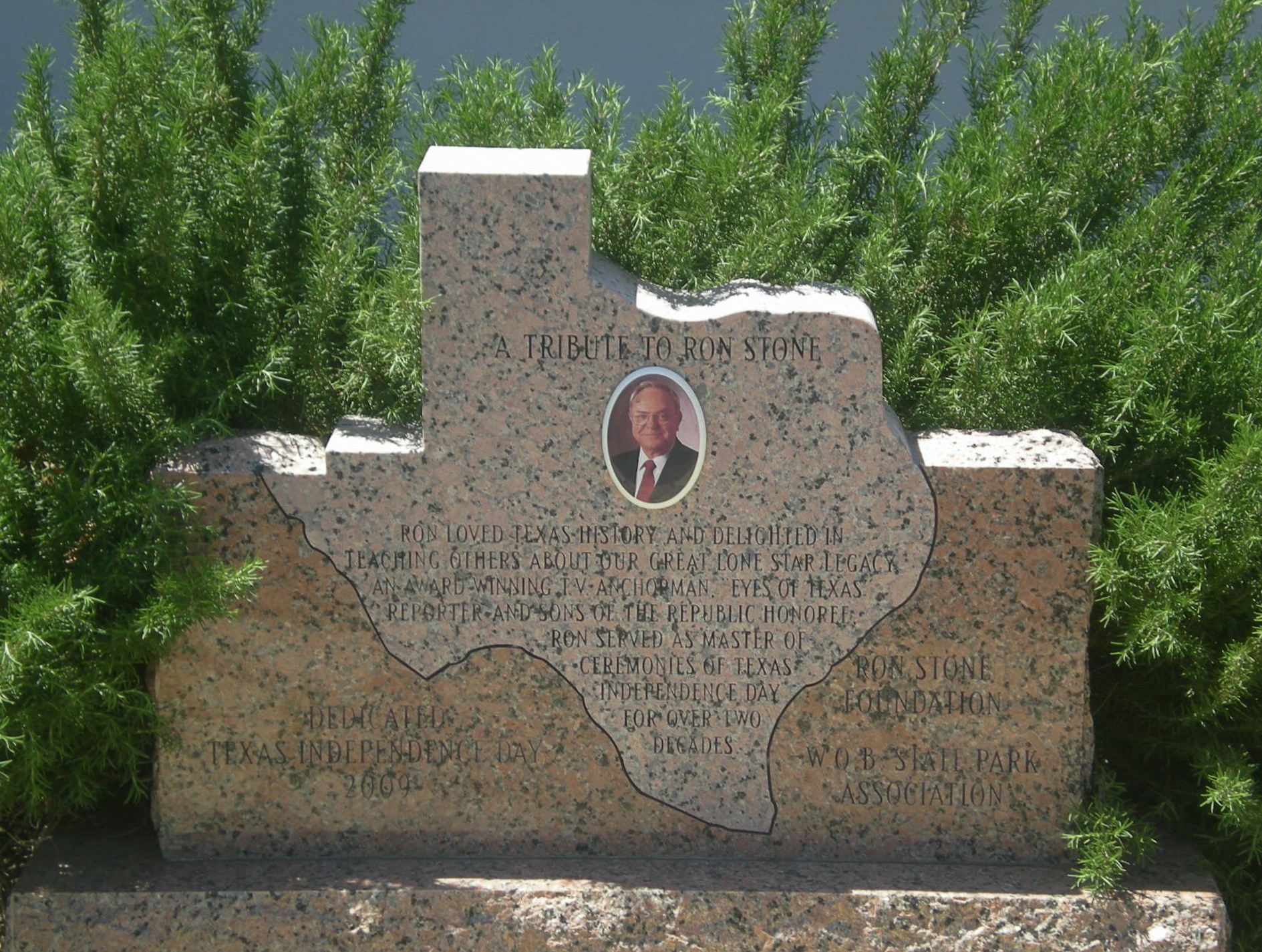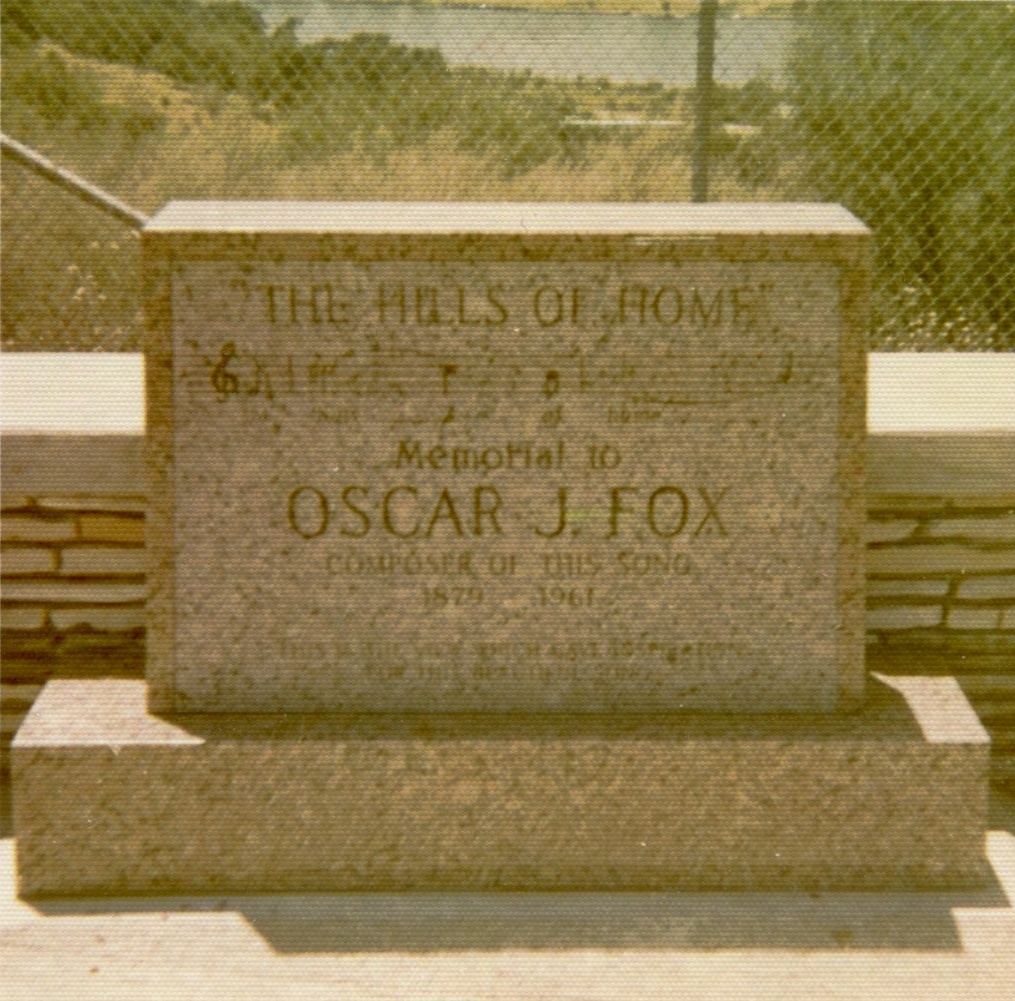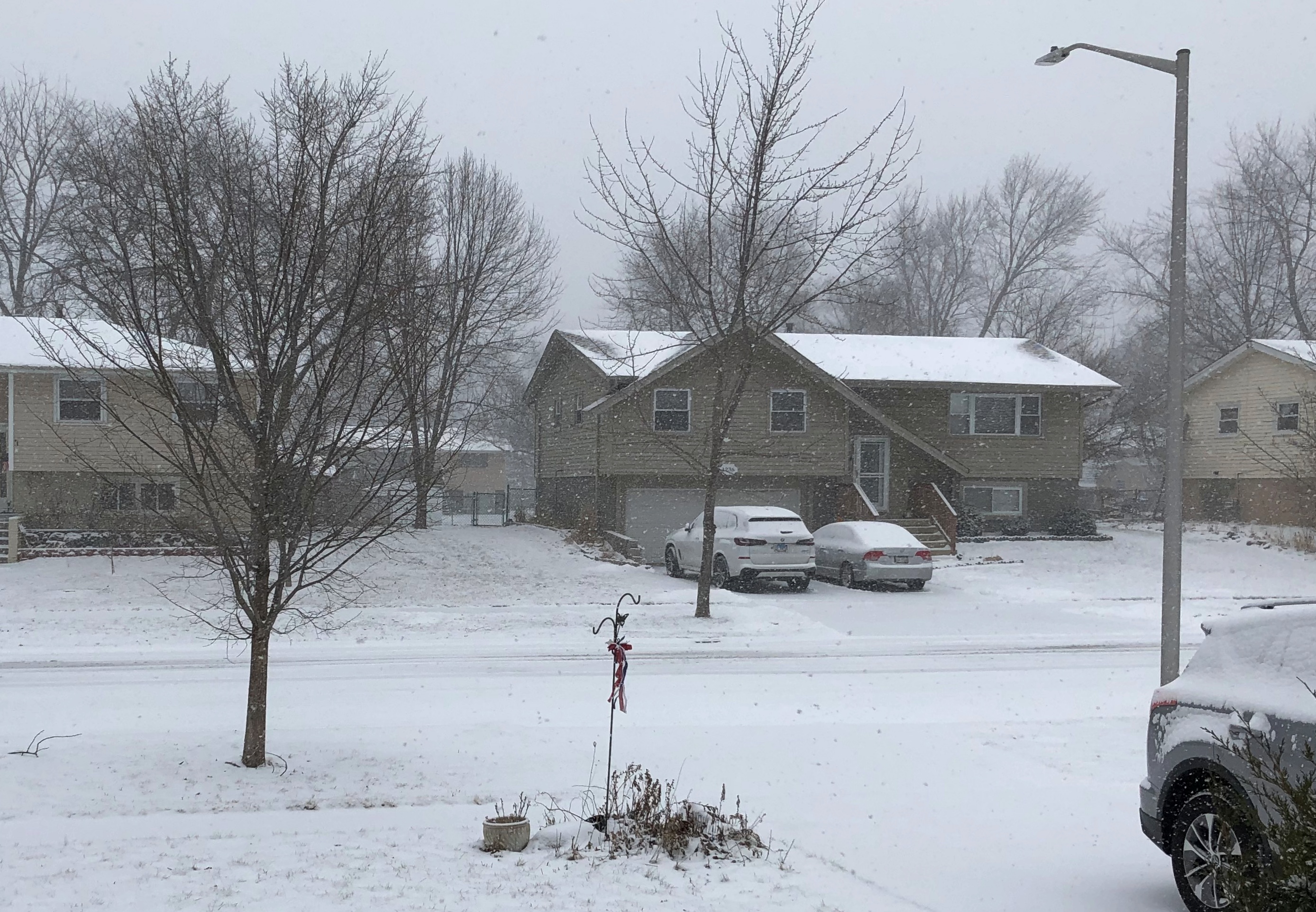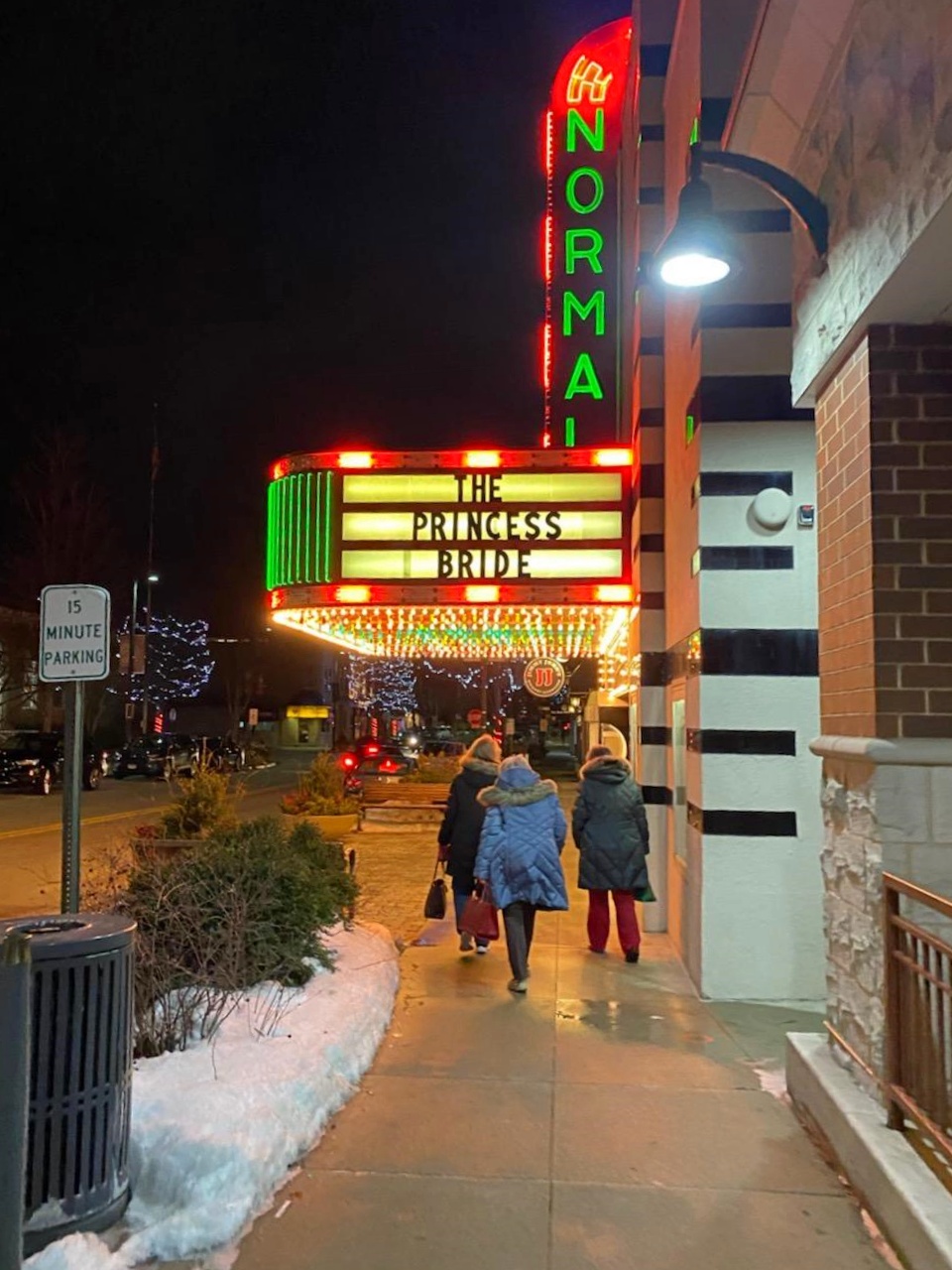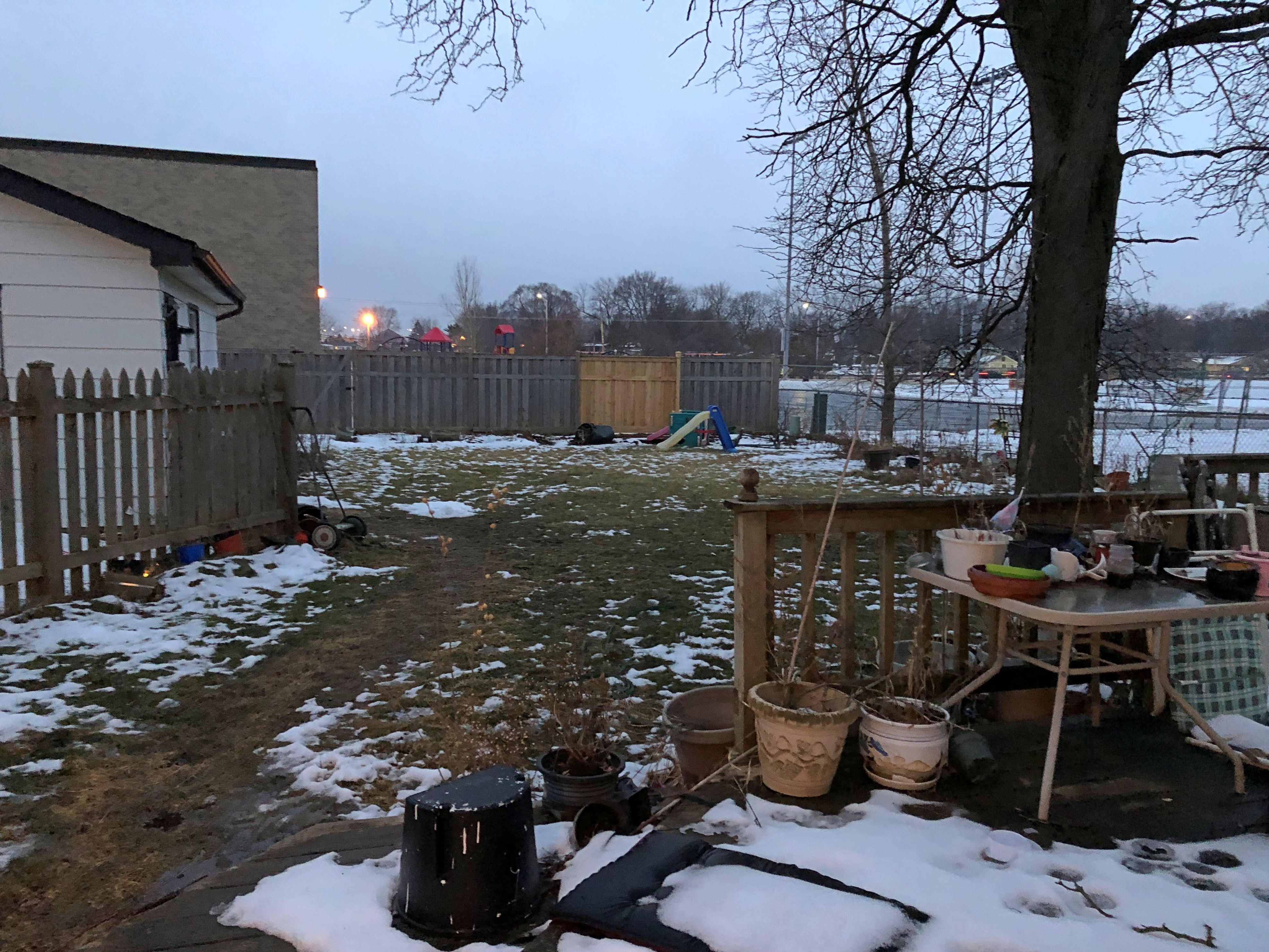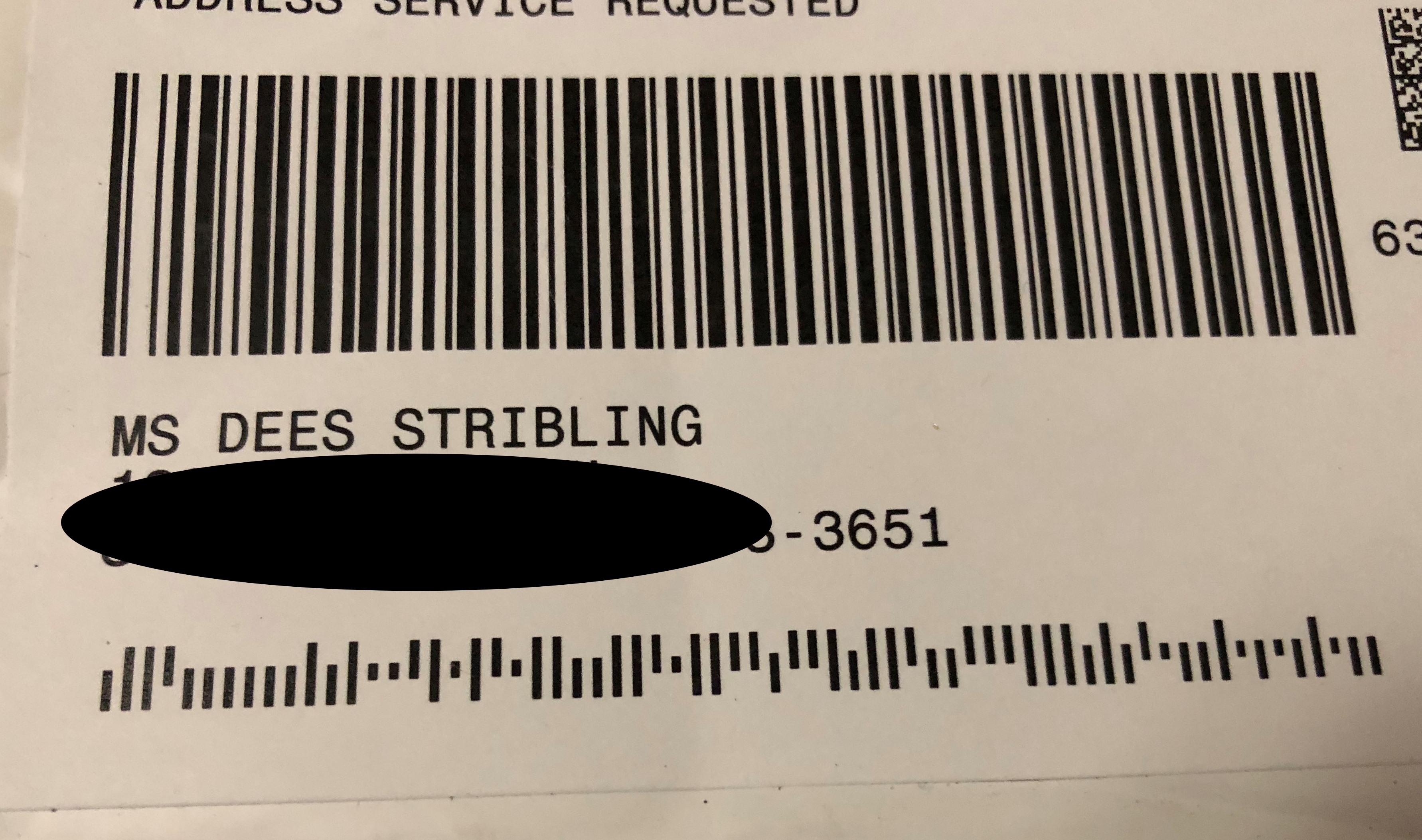Time for an autumnal break. Back to posting around October 16, when the tree colors will be bold and the winds (probably) brisk, at least around here. Expect photos.
Out last stop in Milwaukee on Sunday afternoon, as a light rain fell, was Chubby’s Donuts, spotted by chance and visited on a whim.
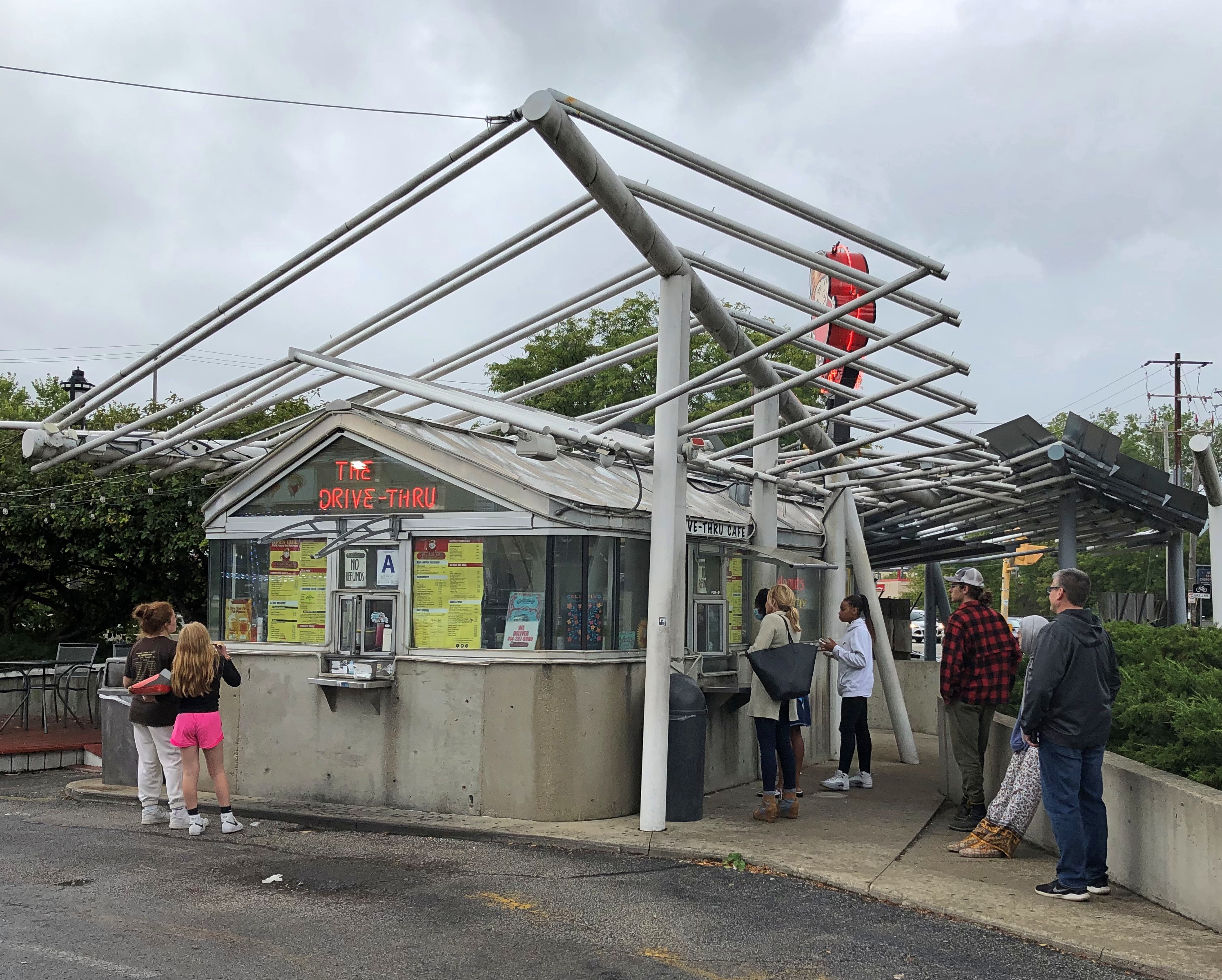
The place has a mascot atop. Hard to tell just how chubby he is.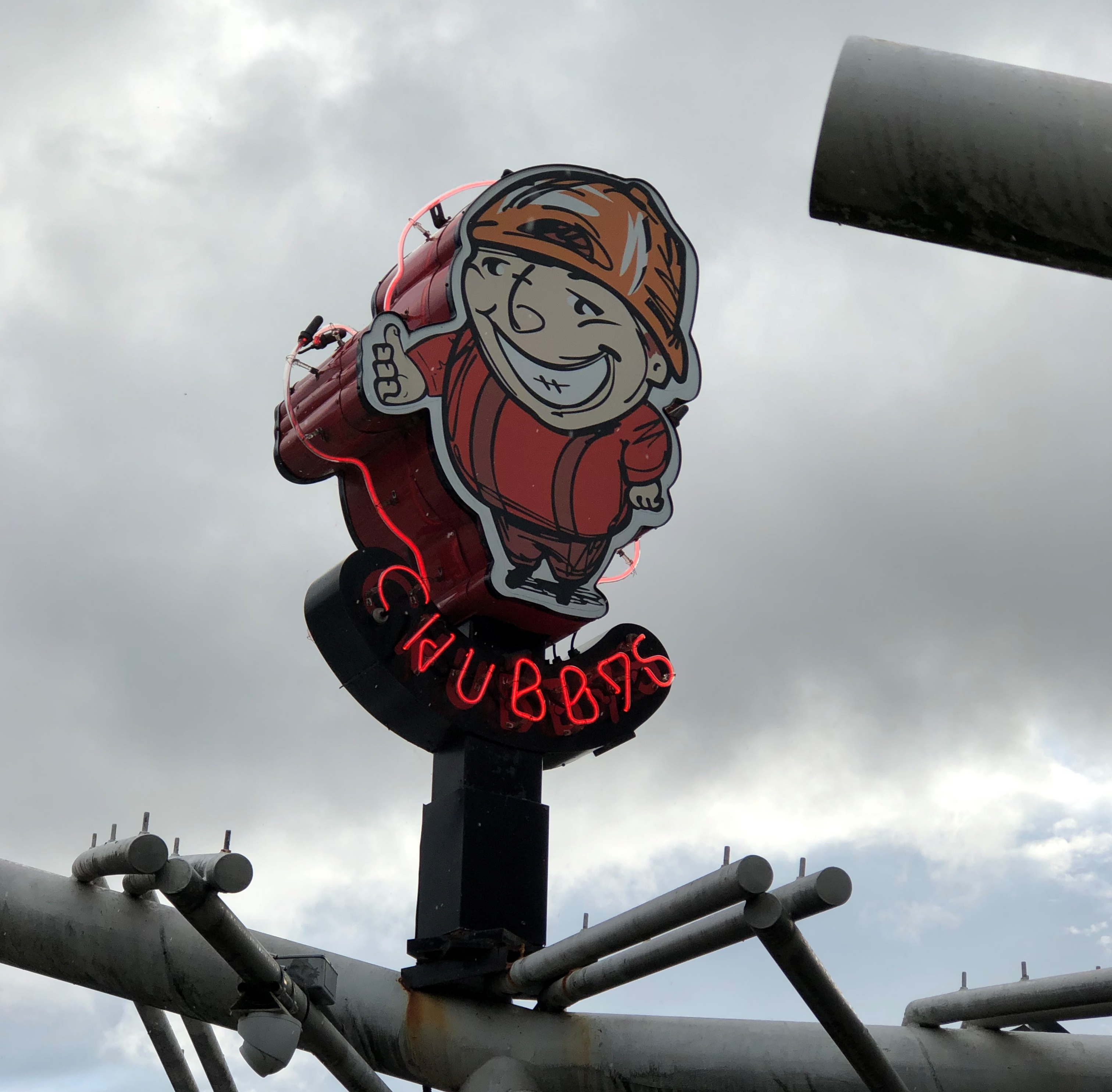
The doughnuts, which are really round dough-rings each about the size of an onion ring, come in bags, and are dusted liberally with cinnamon and sugar. Pretty good, but I’m not running up to Milwaukee just for them.
On Monday evening, we went to west suburban Westmont to visit my old friend Kevin, and participate in a trivia contest at a local restaurant. That was a first for me, unless you count the contest at one of my former companies, at a company event ca. 1999, that netted me some movie tickets.
I don’t remember all the various categories now, but as usual, some were easier than others, and our team (Kevin, Jay and I) came in second, partly on the strength of us knowing all eight of the comic strips in the visual part of the contest. Everyone got a piece of paper with eight single panels illustrating each comic, but without any captions, and you had to name the strip for each.
They were The Far Side, Calvin & Hobbes, Nancy, Garfield, The Family Circus, Bloom County, The Adventures of Tintin and Beetle Bailey.
I thought they were easy. Maybe it’s a generational question: who among the younger set is going to know that many of them, much less all?
Then again, I remember a high school English teacher of mine expressing wonder that any adult — including a highly educated friend of his — would spend time reading the funnies, so perhaps he wouldn’t have done very well at naming them either, despite being of the generation who grew up with Terry and the Pirates (for example).
Another category was songs with the word “love” in their titles, which of course includes a lot of possibilities. Name the artist, given the song title. We didn’t do that well — flummoxed mostly on the newer songs — but God help me, I knew that the Captain & Tennille had a big hit with “Muskrat Love” (1976).
What I didn’t know, until I happened to hear about it on the radio a few years ago, was that the Captain & Tennille’s version of “Muskrat Love” was a cover, and that the band America had done an earlier one. It was written and first recorded by Willis Alan Ramsey, of all people. In any case, it’s one of those songs not that you’ll always remember, but which you’ll never forget.




